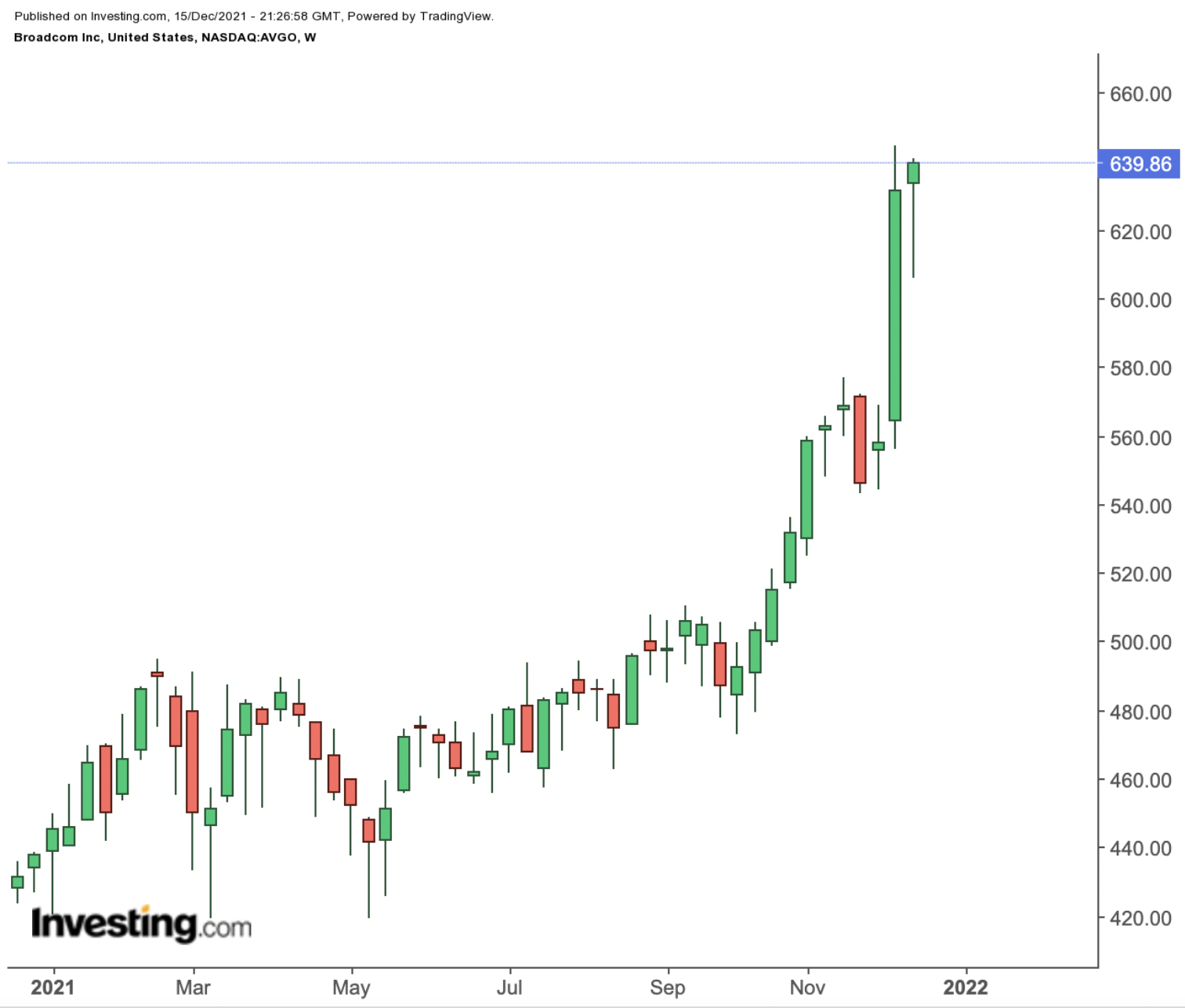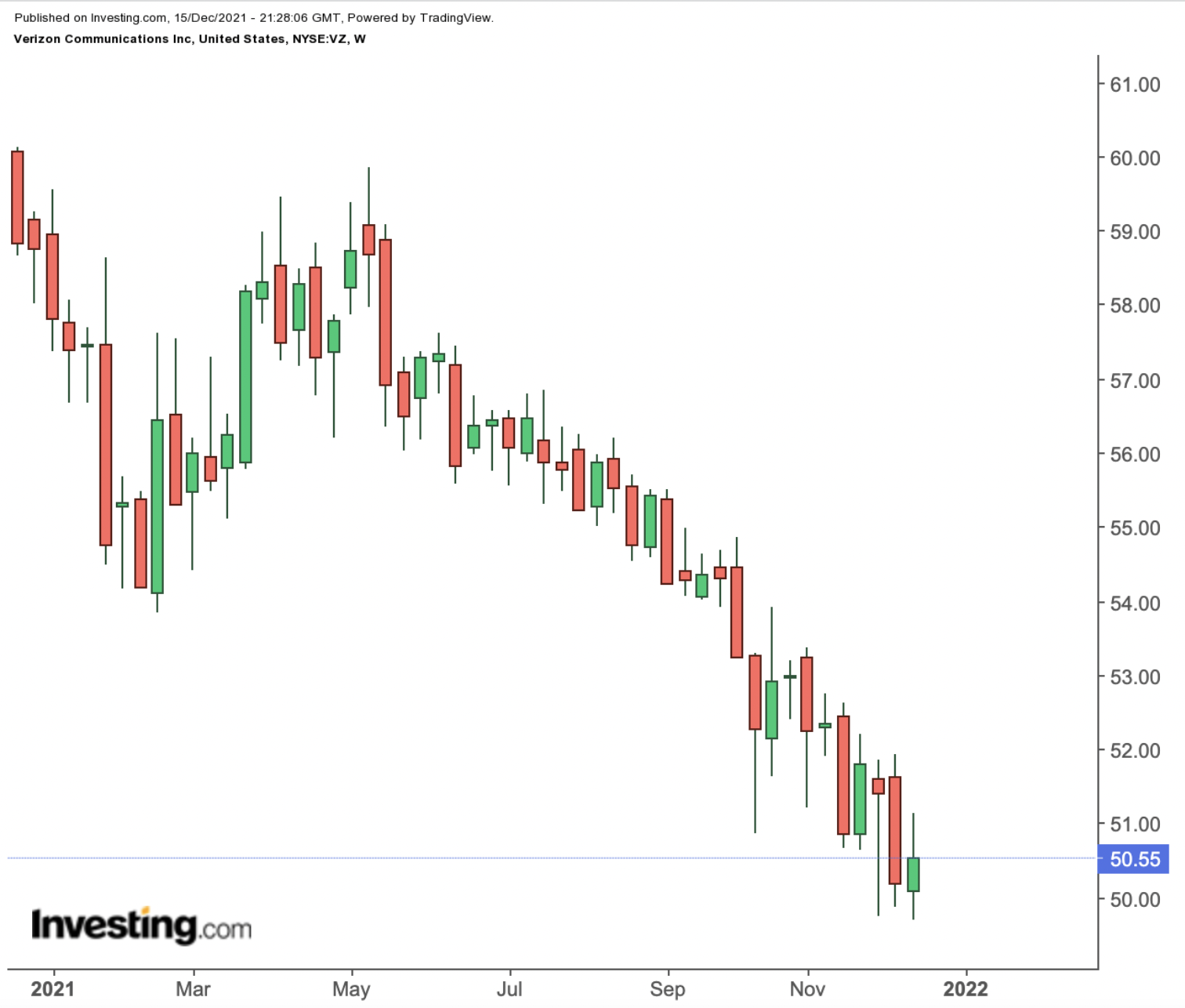It’s now a harsh reality that inflation is going to stay with us over a longer period of time than previously expected.
At the start of 2021, the US was forecast to end the year with 2% inflation. Instead, the world’s largest economy could end the year with a rate of inflation close to 7%. The sticky nature of this price escalation means the Federal Reserve will be raising rates more quickly than expected. What’s adding to this risk is that equity prices are already near bubble territory.
As these risks grow, equity values are becoming harder to sustain, forcing investors to move their funds from high-growth stocks to safe havens such as Treasuries. One other avenue to consider in this uncertain economic environment is to buy some top dividend-paying stocks that raise their payouts faster than the rate of inflation.
With that theme in mind, below we've short-listed two quality stocks that income investors could consider buying now. Each stock not only offers the potential for strong capital gains, but, additionally, has provided substantial annual payout raises to counter the impact of higher prices.
1. Broadcom
Investing in semiconductor stocks has proved to be a winning bet for investors over the past two years. When the use of everything from laptops, to cellphones to data centers exploded during the pandemic, the companies that make the world’s fastest and smallest chips struggled to meet demand.

If you want to play it safe in this sector by buying less volatile stocks, we recommend considering Broadcom (NASDAQ:AVGO) shares. The San Jose-based company’s wireless connectivity chips are used in iPhones and other smartphones. Its switch silicon and custom designs are essential components of data centers owned by cloud-computing giants like Alphabet's Google (NASDAQ:GOOGL) and Amazon AWS (NASDAQ:AMZN).
In an earnings report released last week, Broadcom again surpassed analysts’ expectations. In the fiscal fourth quarter, Broadcom’s adjusted profit per share rose 23%, and its sales 15%.
According to CEO Hock Tan:
“Broadcom concluded the year with record fourth-quarter results driven by a rebound in enterprise, and continued strength from cloud and service provider demand. Our infrastructure software growth continues to be steady with our focus on strategic customers.”
The extensive reach to multiple industries that Broadcom enjoys also gives investors both a reliable income stream and added upside potential. While Broadcom stock soared more than 250% in the past five years, its dividend also swelled.
It has more than tripled, from $1.02 per share each quarter in 2017 to $4.1. The company last week announced a massive 14% hike to the common stock dividend and $10-billion worth share buyback plan.
At $639.86 as of yesterday's close, the stock is currently yielding about 2.56%—a rate of return that is higher than the average yield offered by S&P 500 companies. Broadcom is in a strong position to reward its investors with hefty payouts going forward as demand for its chips remains strong.
2. Verizon
If you’re looking to earn cash from your stock positions, it’s not a bad idea to buy shares of technology companies that generate recurring revenue from their established products.
As the provider of internet and wireless connections, Verizon Communications (NYSE:VZ) certainly fits the bill. These services are among the last items consumers delete from their must-have lists. This predictability and stickiness increases the company’s income appeal for long-term investors.

Verizon has a solid track record of rewarding investors with growing dividends since 2007. The company currently pays $0.64 a share quarterly, which translates into an annual dividend yield of 5%.
CEO Hans Vestberg is in the process of cutting investments in risky areas, like media, to fully focus on network expansion. Recently, Verizon sold Yahoo to a private equity firm, Apollo Global Management, for $5 billion, with $4.25 billion in cash.
This year, Verizon exceeded wireless-subscriber growth estimates, with promotions for new phones helping the carrier in the race to sign up customers for faster 5G services.
Telecom shares may not provide hefty capital gains, particularly when compared with high-growth stocks. But these equities are defensive in nature and help investors beat inflation with decent returns.
That being said, Verizon's stock continues to underperform the market. Its shares are down 13% this year on concerns that the company’s cable TV and wireline businesses will continue to be a drag on its growth profile.
Investors, however, are ignoring two critical facts: Verizon continues to lead in 5G rollouts and its wireless segment has a huge growth potential. In the third quarter, both sales and per-share earnings came in higher than analysts’ expectations.
Verizon is at the top of Goldman Sachs’ list of laggards that could stage a powerful rebound in 2022, with a 24% upside potential going into the new year. The stock closed yesterday at $50.55.
